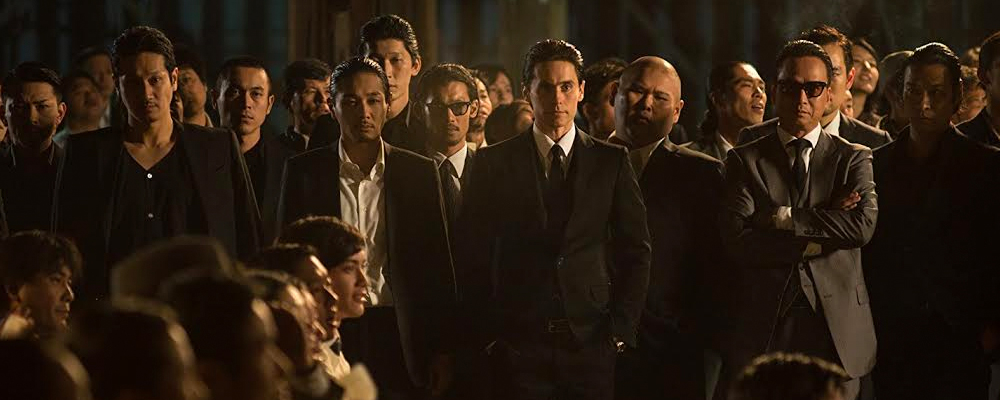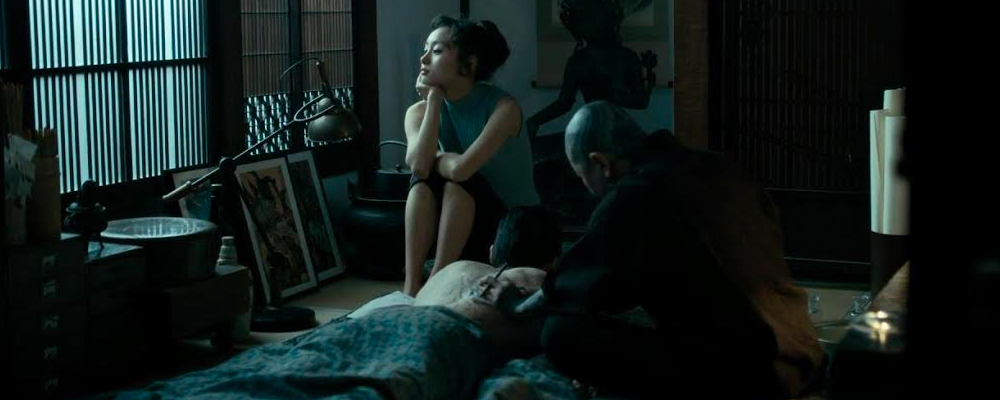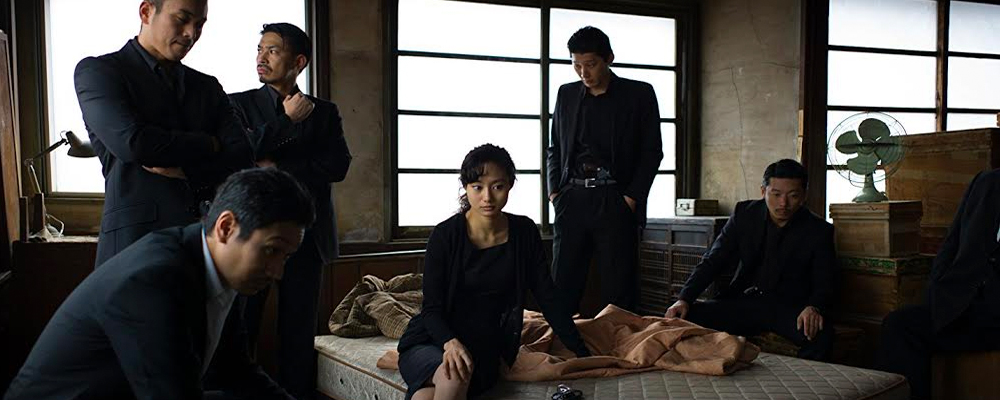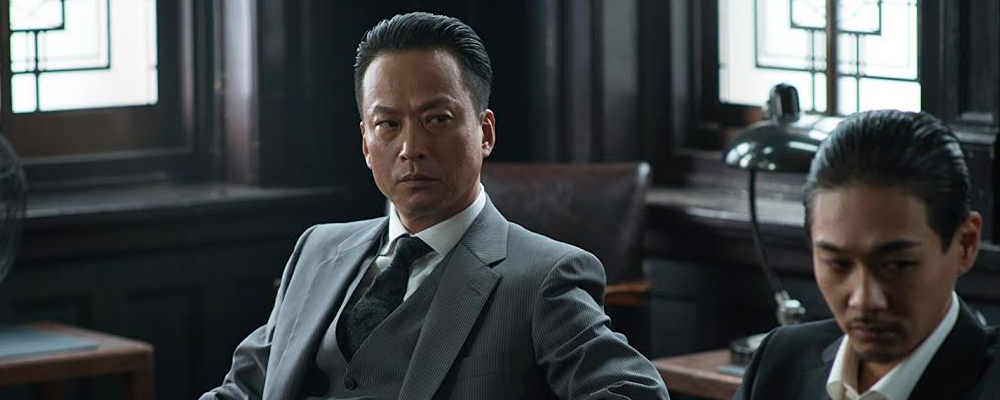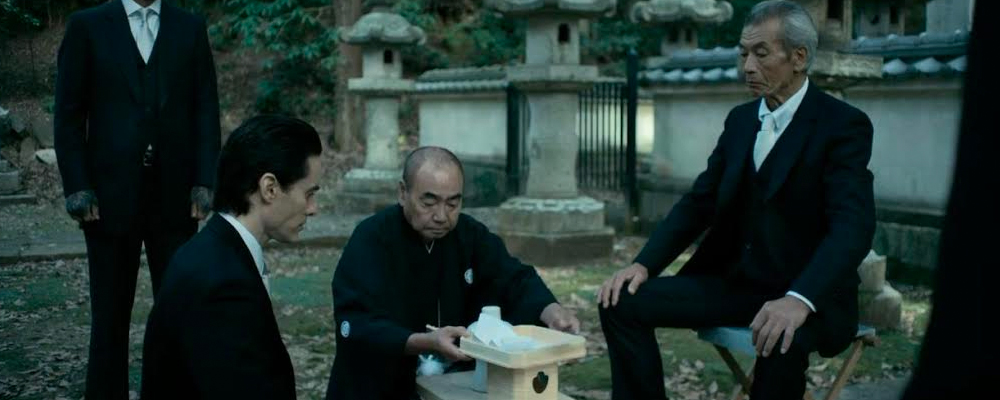Jared Leto Joins Japan’s Yakuza Crime Syndicate in Netflix’s ‘The Outsider’
Alci Rengifo
The gangster movie is one of the trickiest genres to pull off well. Mostly because nearly every angle has been explored, re-explored and expanded. “The Outsider” attempts to combine different angles from the setting of a period piece to the exotic idea of an American joining the Yakuza underworld. The idea is there, but the delivery is off. This is yet another offering from Netflix, which is packing its roster with more original content than ever before. But “The Outsider” ends up misfiring —everywhere.
Jared Leto plays Nick Lowell, an American in a Japanese prison circa 1954 near Osaka. After saving the life of a fellow inmate named Kiyoshi (Tadanobu Asano), Nick finds himself with a new, dark lease on life. Kiyoshi happens to be a member of the yakuza gangland underworld. He offers Nick a chance to join his gang if he helps him with a scheme to escape. Once on the outside Nick is introduced into the underbelly of Osaka, where Kiyoshi’s fellow yakuza of the Shiramatsu gang fight territorial wars with other local crime families. Their main targets are the key ports where much post-war smuggling takes place. While getting to know his new surroundings, Nick meets Kiyoshi’s sister Miyu (Shioli Kutsuna). There is an attraction there but it’s dangerous to be both a yakuza and a lover, of course. Additionally there is hesitation from the ranks of the gang towards Nick considering he’s a white American. Before long Nick finds himself surrounded by a growing web of deceit as members of the gang suspect traitors abound and the main enemy family makes its intentions clear.
“The Outsider” opens with an intriguing premise in its idea of an American attempting to blend into the world of yakuza crime. This could indeed have been a fascinating tale. But instead director Martin Zandvliet gets trapped in his desire to create ambiance instead of energy. Bluntly put, the movie becomes a chore to sit through. The tone, editing and even performances all become curiously meandering for the movie’s entire 2 hour running time. The clearest example is the character of Nick himself. For nearly an hour and forty minutes he does almost nothing. Leto plays the role with a deadpan, cold attitude in which he simply walks down alleys, stands around in rooms, casually cuts someone’s throat but says nothing about himself or of any dramatic interest. It is as if Zandyliet believes the audience will be content with just watching Leto, literally, without wanting him to actually take part in a story. What Nick thinks about his new surroundings, how he deals with the prejudices against him are simply not explored in the screenplay by Andrew Baldwin. Even his romance with Miyu is a flat, one-note affair initiated with the simple line, “you’re beautiful.” Leto’s best scene, in which he again says nothing, is a moment where he must make amends with his new mafia boss by voluntarily slicing off two of his fingers with a knife. The sheer expression of strain and tension outdoes everything else in the movie.
Zandyliet’s style here is also a curious choice. The movie is apparently set in 1954, but aside from a few references to World War II this story could be set at any time. There is never a true sense that we have been transported to another era. Even Leto has the look of a modern-day L.A. talent agent. The cinematography is cold and murky, adding to the film’s somber, slow feel. Some directors will forgo a tight plot for atmospherics, as Nicolas Winding Refn did in “Only God Forgives.” But there the lack of plot could be momentarily forgiven for the alluring visuals, the immersive music and hallucinatory tone. With “The Outsider” Zandyliet has created an odd crime film where no doubt real mobsters would watch and opine, “come on, it’s more interesting than that.” The storyline becomes convoluted and hard to follow, and it’s never clear what’s at stake. Much of the film is guys in suits, lounging around night spots.
The one bright spot in the casting is Min Tanaka as the elderly boss of Nick’s new crime family. Tanaka carries his scenes with some real presence and style. There is a sudden, curious appearance by Emile Hirsch which seems to have no purpose other than to provide a quick explanation for who Nick is. But it quite literally leads to nowhere. Because Leto is talented when he finally speaks near the end we get a glimpse of what could have been if the film had truly explored the story’s potential.
“The Outsider” feels like the first draft of a story that could have worked with more tweaks and energy. It is another case of a project featuring talented people, but never truly exploiting their talents.
“The Outsider” premieres March 9 on Netflix.

